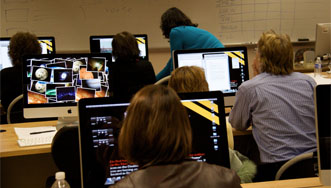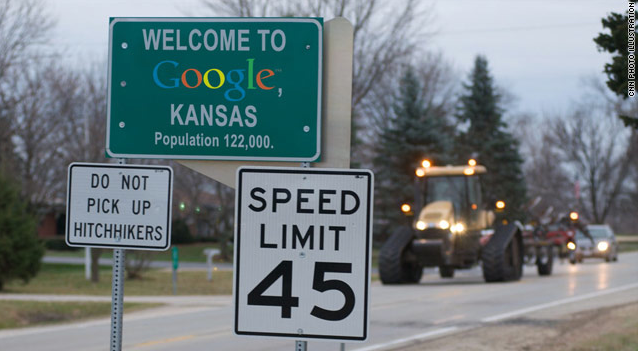Recent Posts
- 2011.01.01 My Technology Resolutions for 2011
- 2010.12.31 My Favorite iPhone Apps
- 2010.12.31 Jack’s 2010 Top 10 Technology Picks
- 2010.12.31 iPad Apps I Enjoy
- 2010.12.31 iPhone App of the Month - RunKeeper

| « Automated Captions come to YouTube | Main | Chatroulette » |
16
2010
Google's Ultra High-Speed Internet Service - What Does It Mean For UMBC?
Some of you may have heard about "Google Fiber for Communities," the technology giant's pilot project designed to bring ultra high-speed Internet service to anywhere from 50,000 to 500,000 people, probably in multiple communities. Google promises that their fiber optic connections will race along at over 1 gigabit per second, which is over 100X faster than what most of us experience today. How fast is that? Fast enough to download a full-length DVD in five minutes.
Google explains the program in this short video:
Google will roll out this experimental program in no more than a few selected areas, and communities are asked to submit an online application by March 26, with the winners being announced sometime later this year.
For those in the selected cities who choose to upgrade, Google says that the cost will be “competitive,” but no pricing schedule has yet been set. For communities, the arrival of ultra-high speed networks should spur tech development, as companies seek to relocate or expand into the affected areas. This, of course, will mean jobs, which has cities scrambling to put together winning bids.
Baltimore’s new mayor, Stephanie Rawlings-Blake, has appointed a “Google Czar” to coordinate with her Office of Economic Development and Neighborhoods on Baltimore’s application. Under Armor has volunteered to assist with marketing the city. (I can see the ad now: A guy with glasses and a tie, stalking around a server room, screaming “We Will Protect This Network!”)
A private group supporting Baltimore’s bid has created a promotional website, and is asking for followers on Twitter, Facebook, and of course, Google Groups. They’ve also collected over 2500 reasons (so far) for Google to select Baltimore, and are asking supporters to upload videos to YouTube, in addition to the videos they’ve collected from leading citizens and elected officials, such as Maryland Governor Martin O’Malley. As you can see, people around here are serious about this.
Baltimore will have competition, though. In Topeka, Kansas, the mayor issued a proclamation changing the town’s name – for the month of March.

If Google should come to Baltimore, what might this mean for us? A lot. UMBC, with its nationally recognized science and engineering programs, and its campus being home to numerous technology, bioscience and research organizations, would, I think, be well positioned to benefit from the arrival of ultra high-speed Internet service. This cutting edge technology would give UMBC an even greater competitive advantage as it goes up against larger, and perhaps better funded universities. This would lead to better programs, better access to Internet resources and, in the end, better prepared students, many of whom may just have to look across Hilltop Circle to find their first employer. It would also further enhance the university’s national reputation as a technology leader, and would no doubt act as a magnet for students and organizations from all over the country.
So, as you can see, there’s a lot on the line as communities vie for Google’s attention, and much of that could impact UMBC for years to come. So keep your fingers crossed, and stay tuned to UMBC Tech Bits for updates.